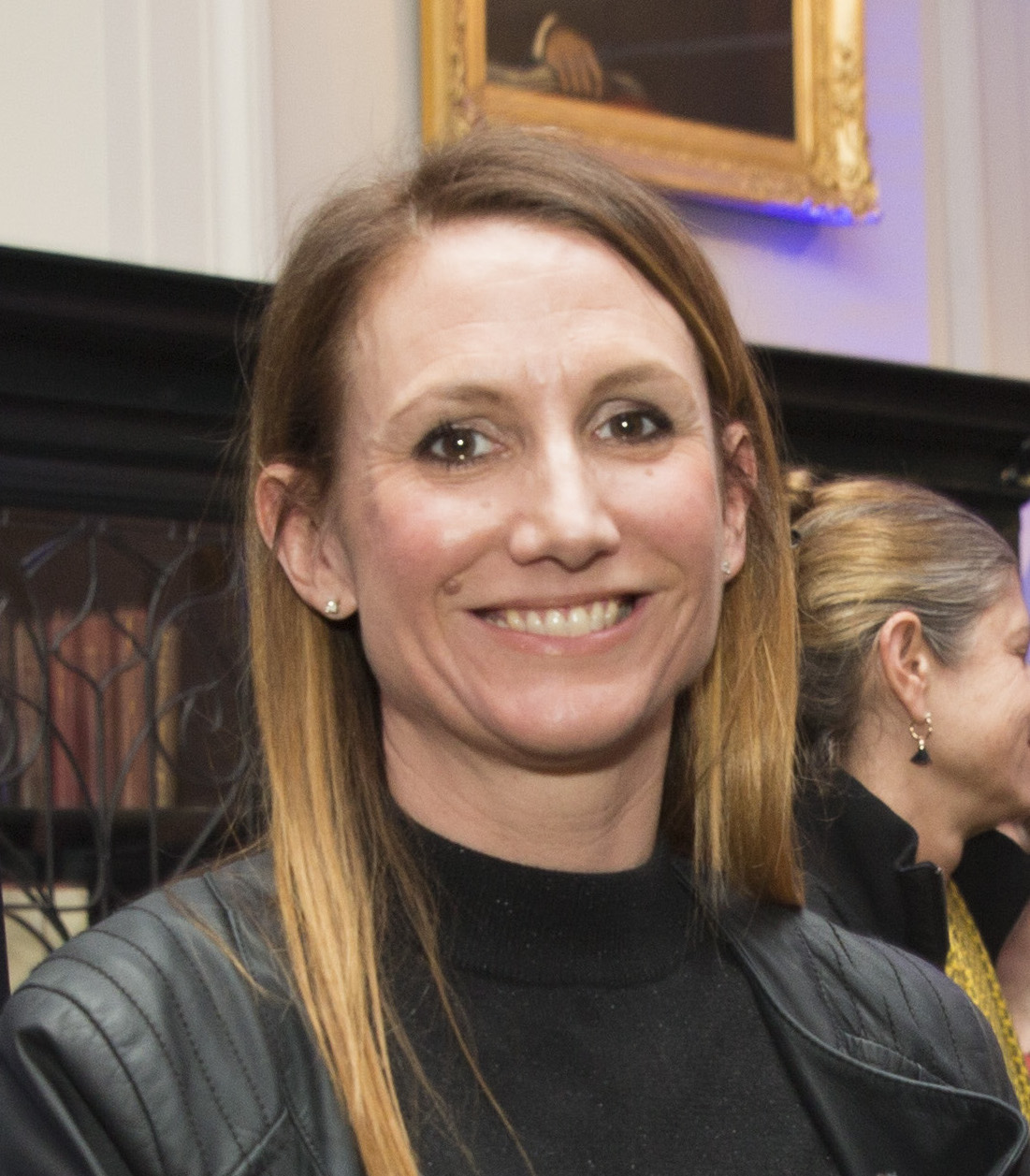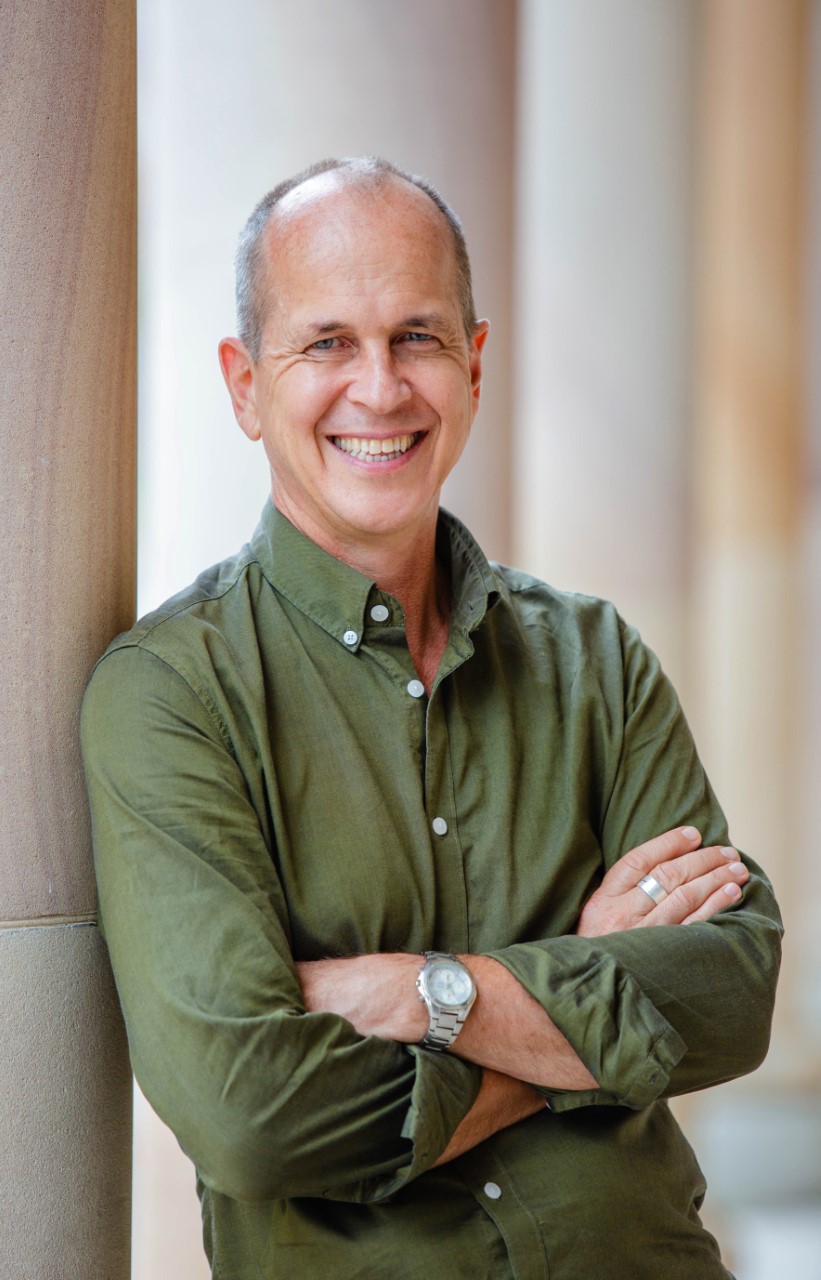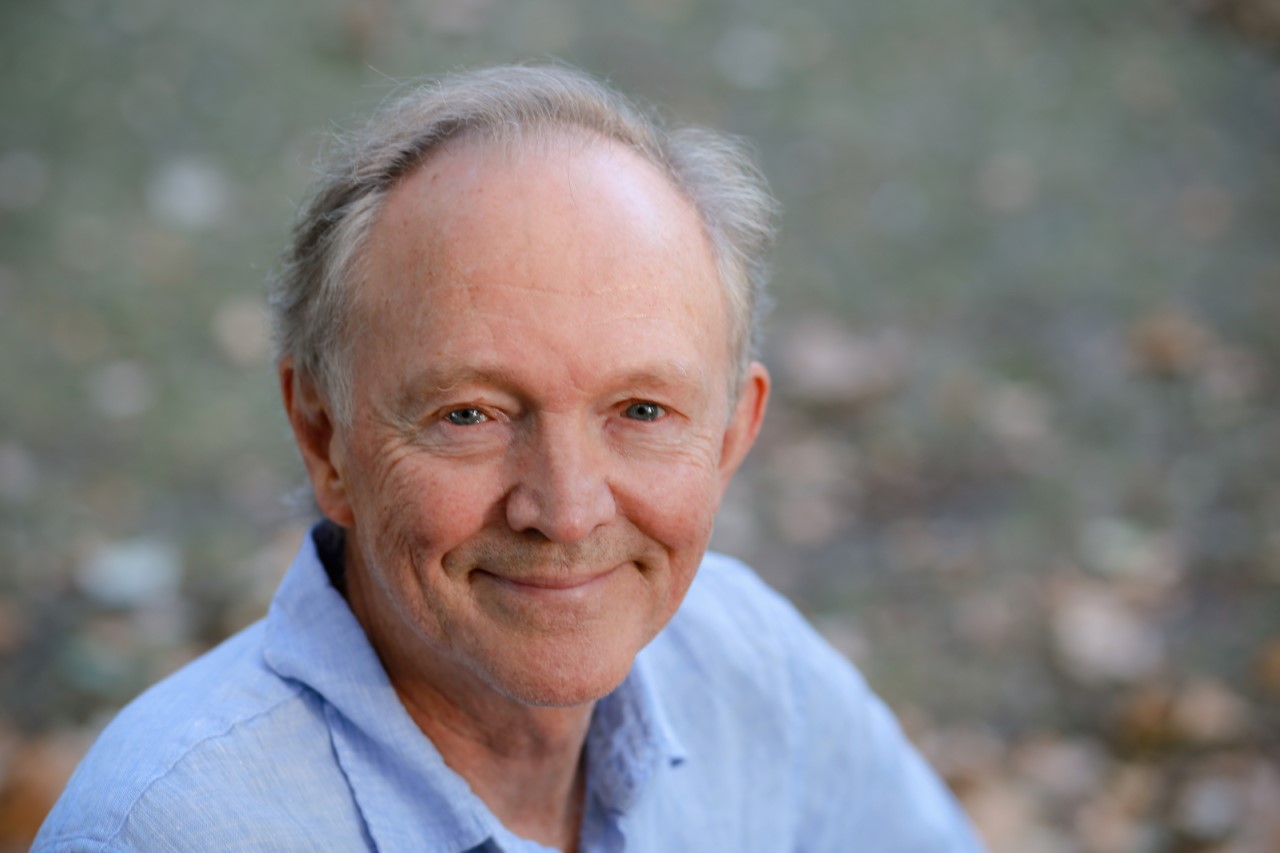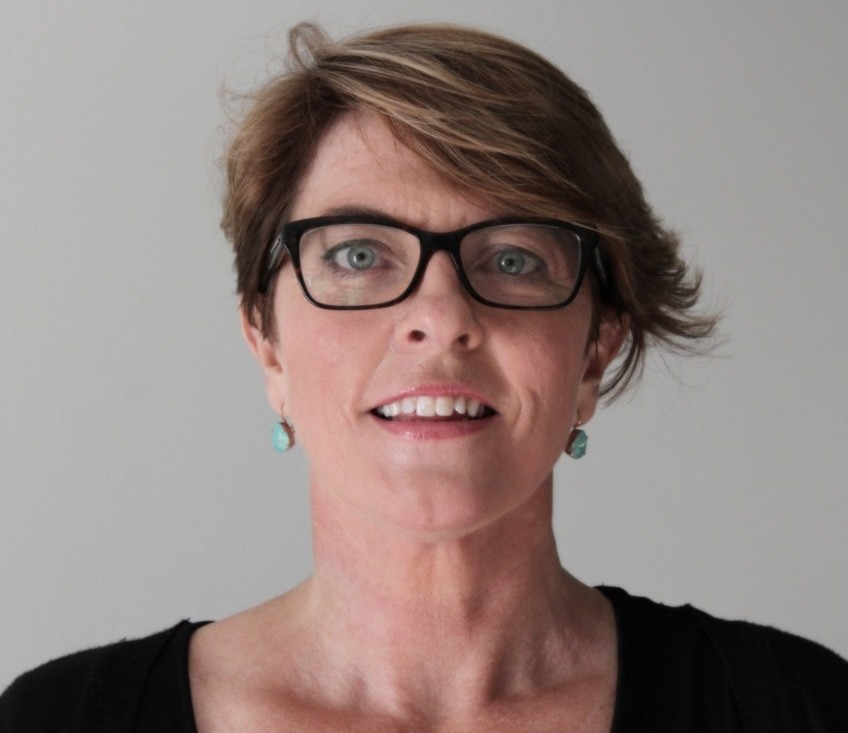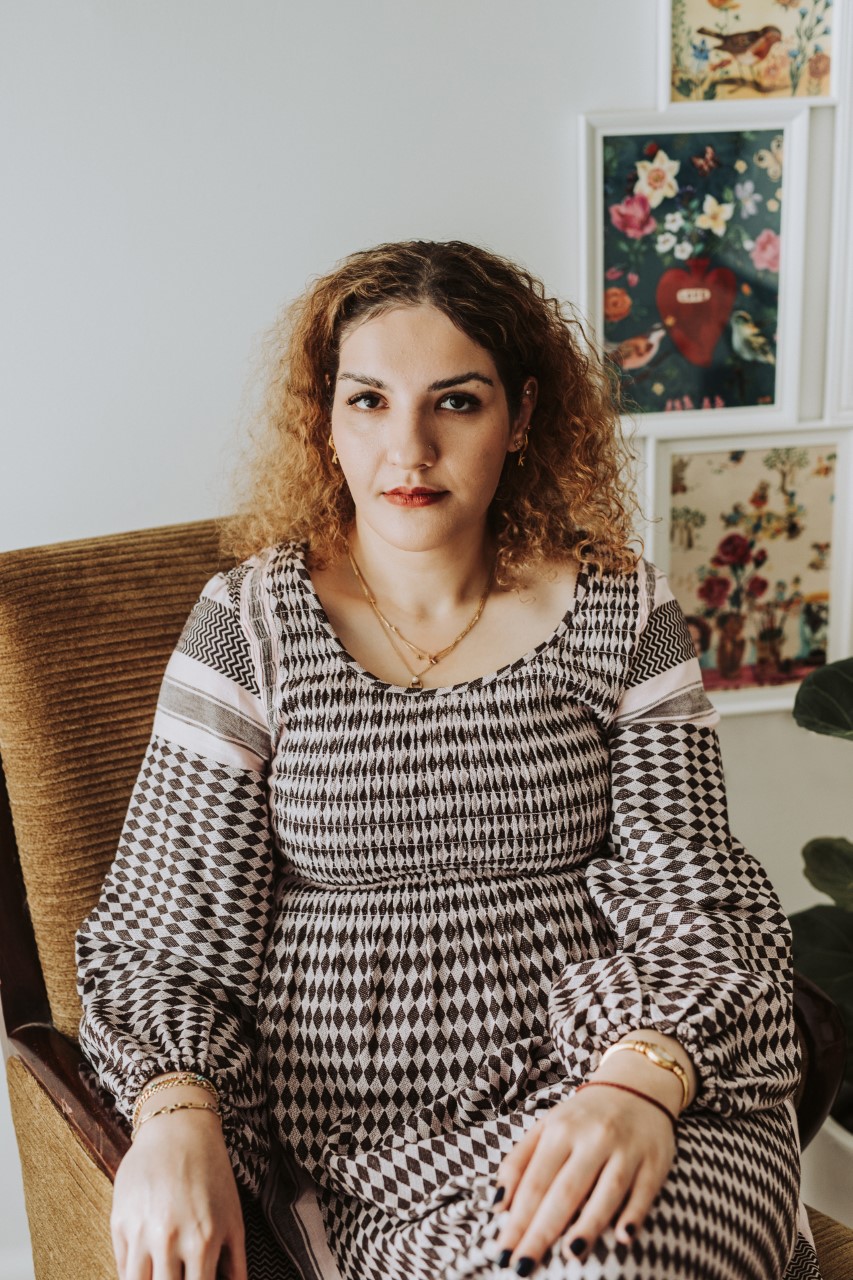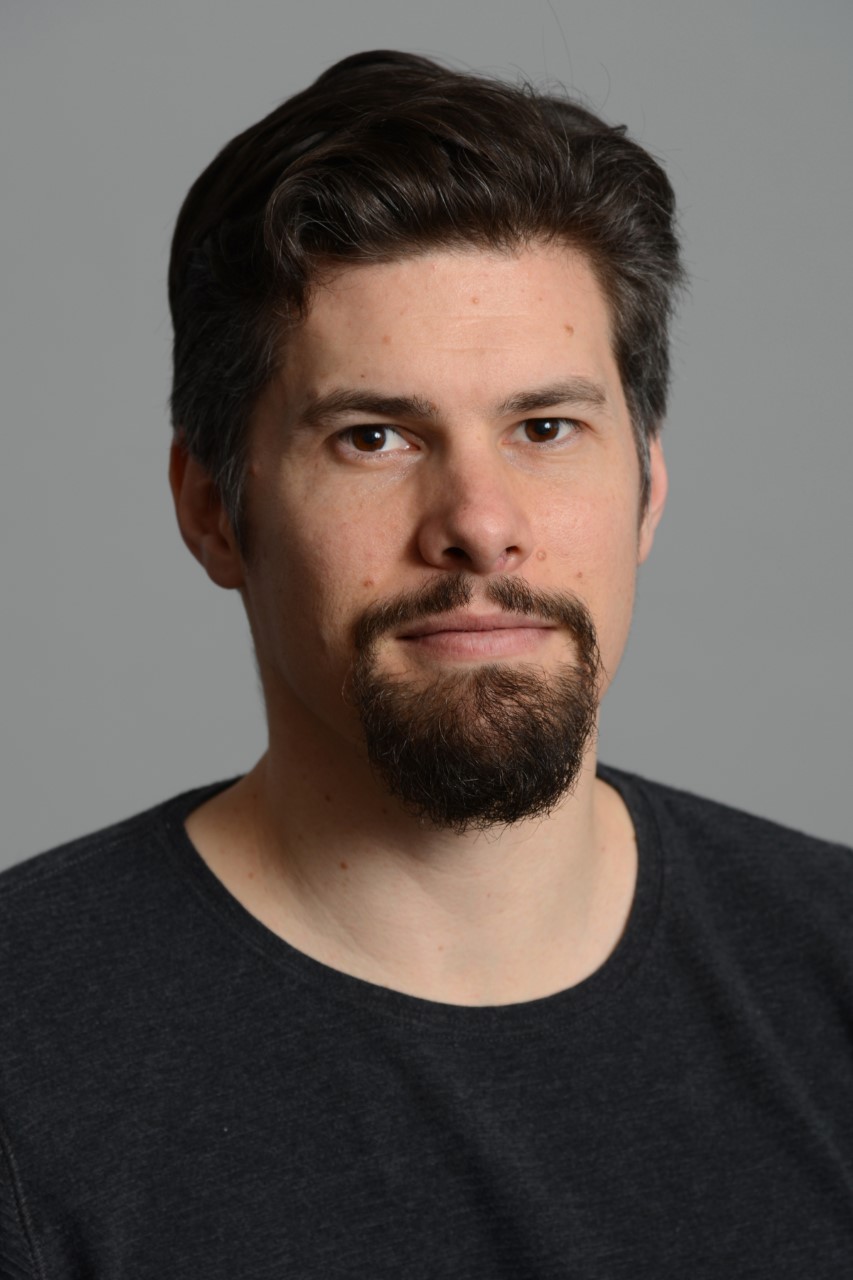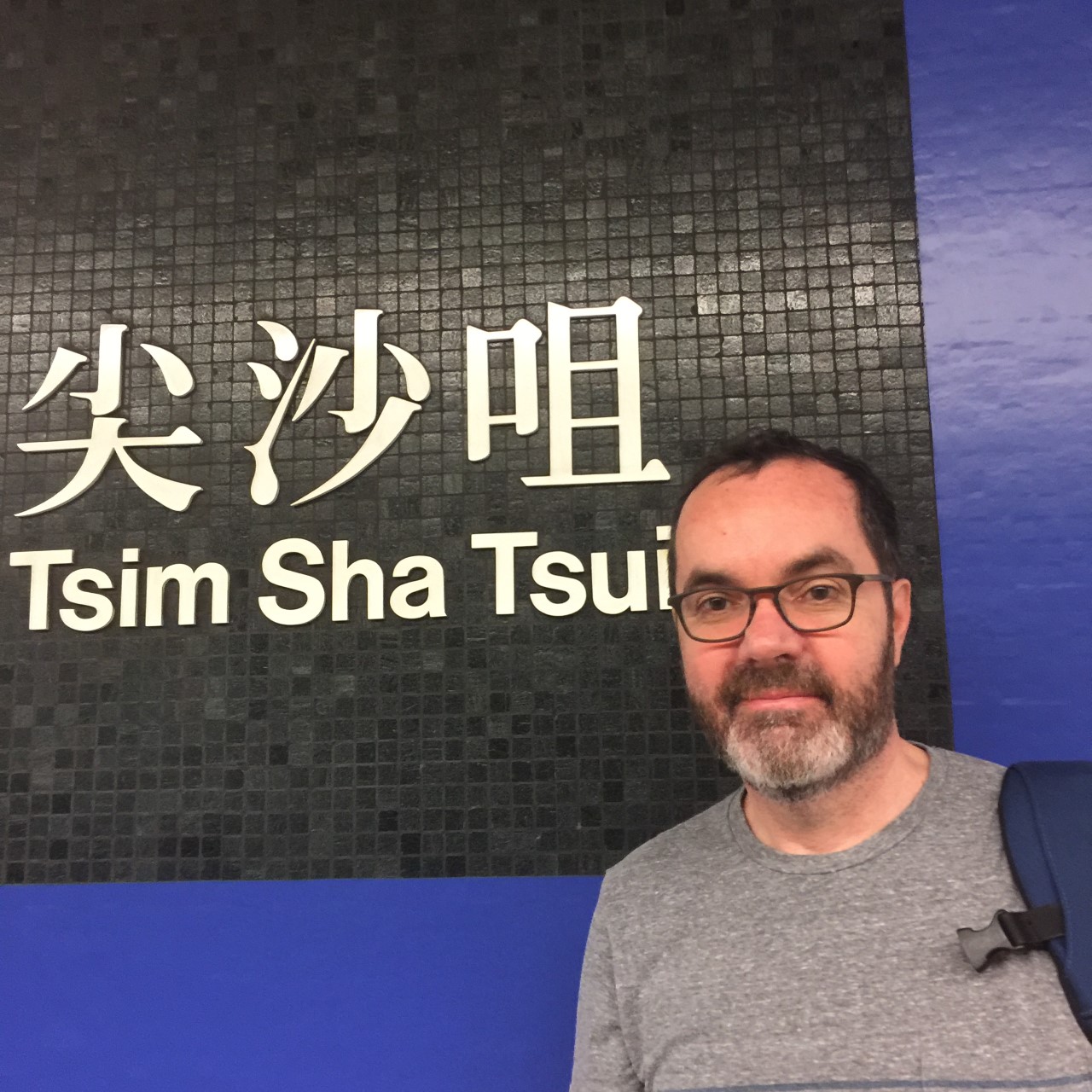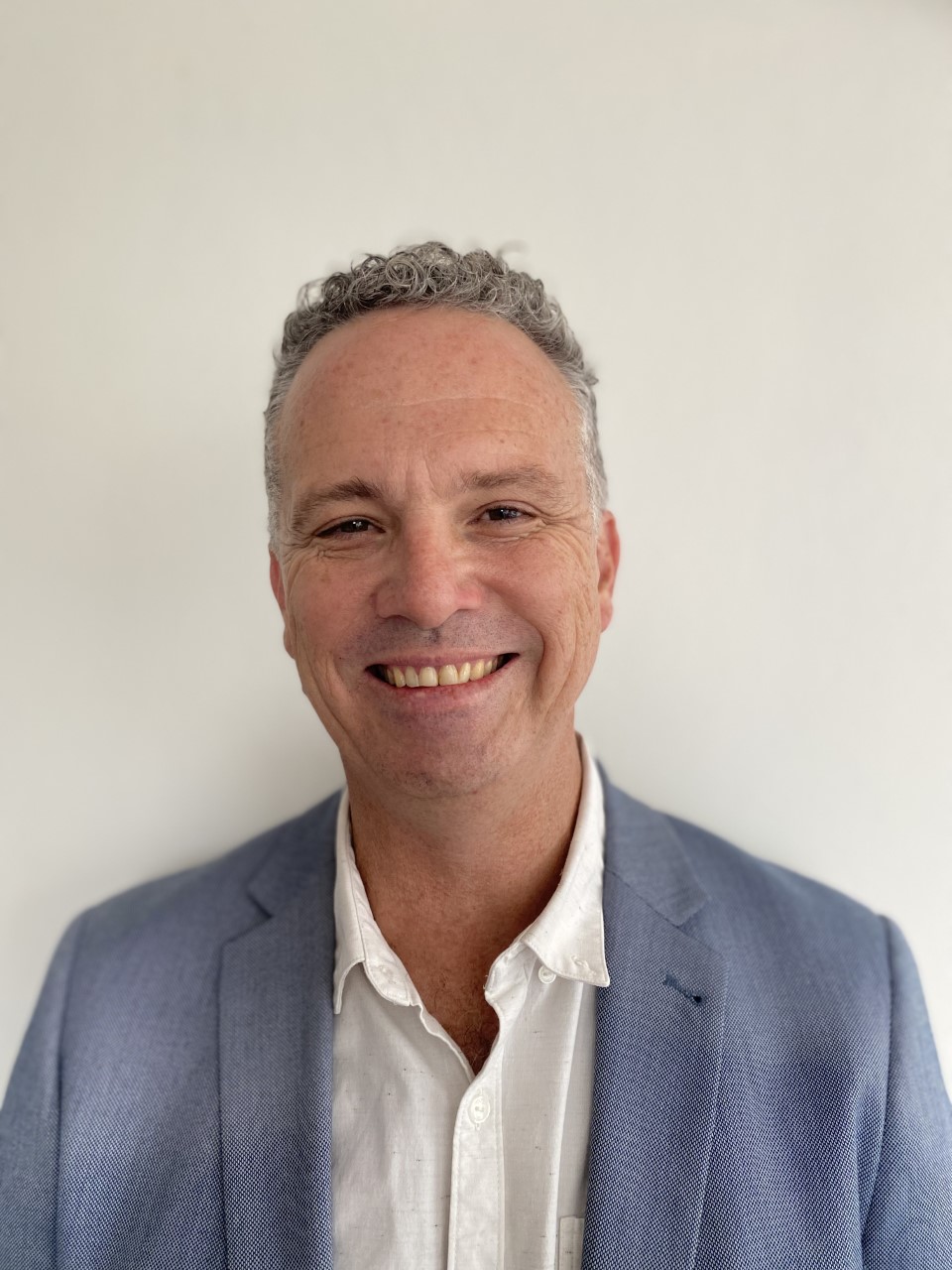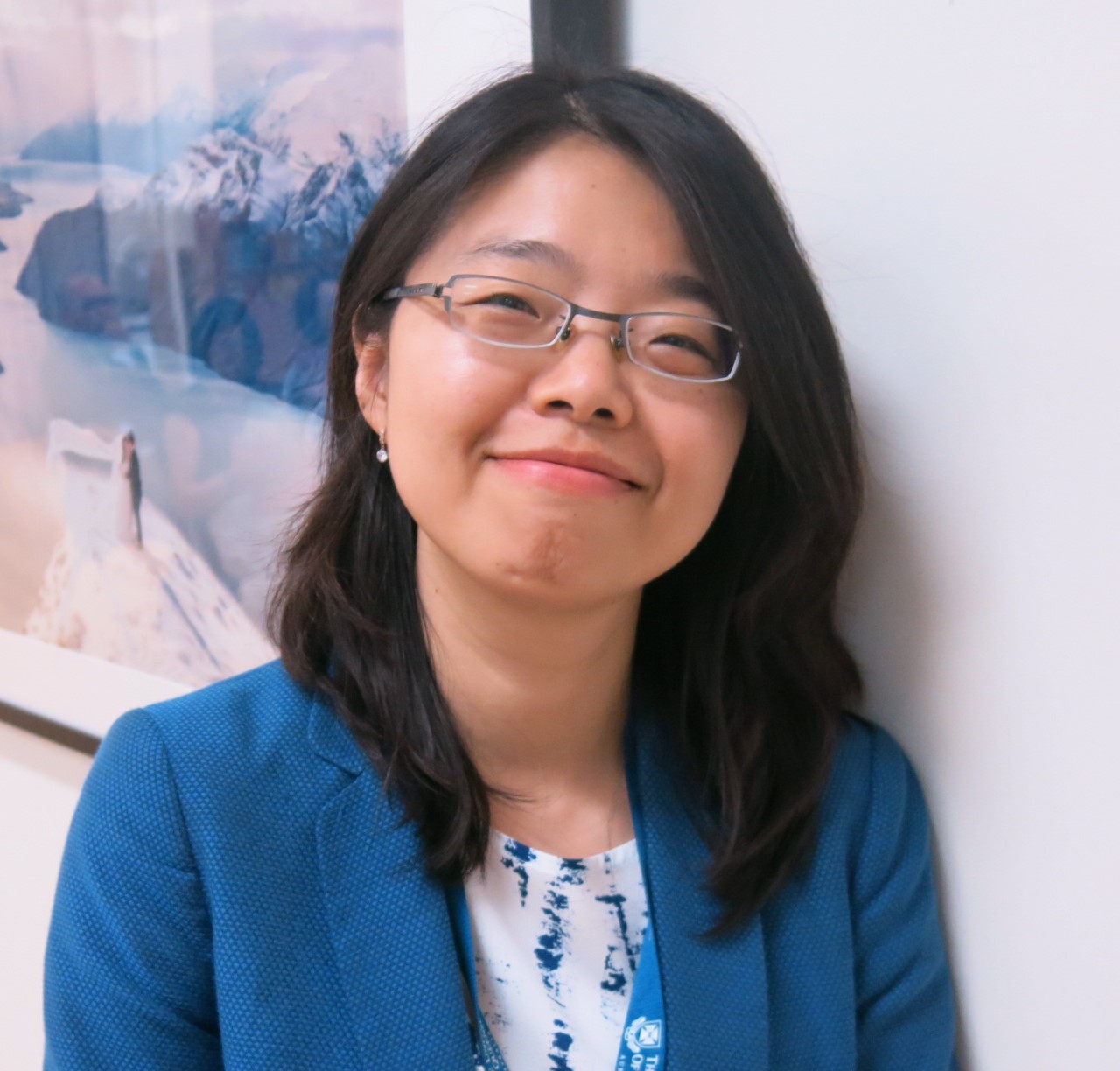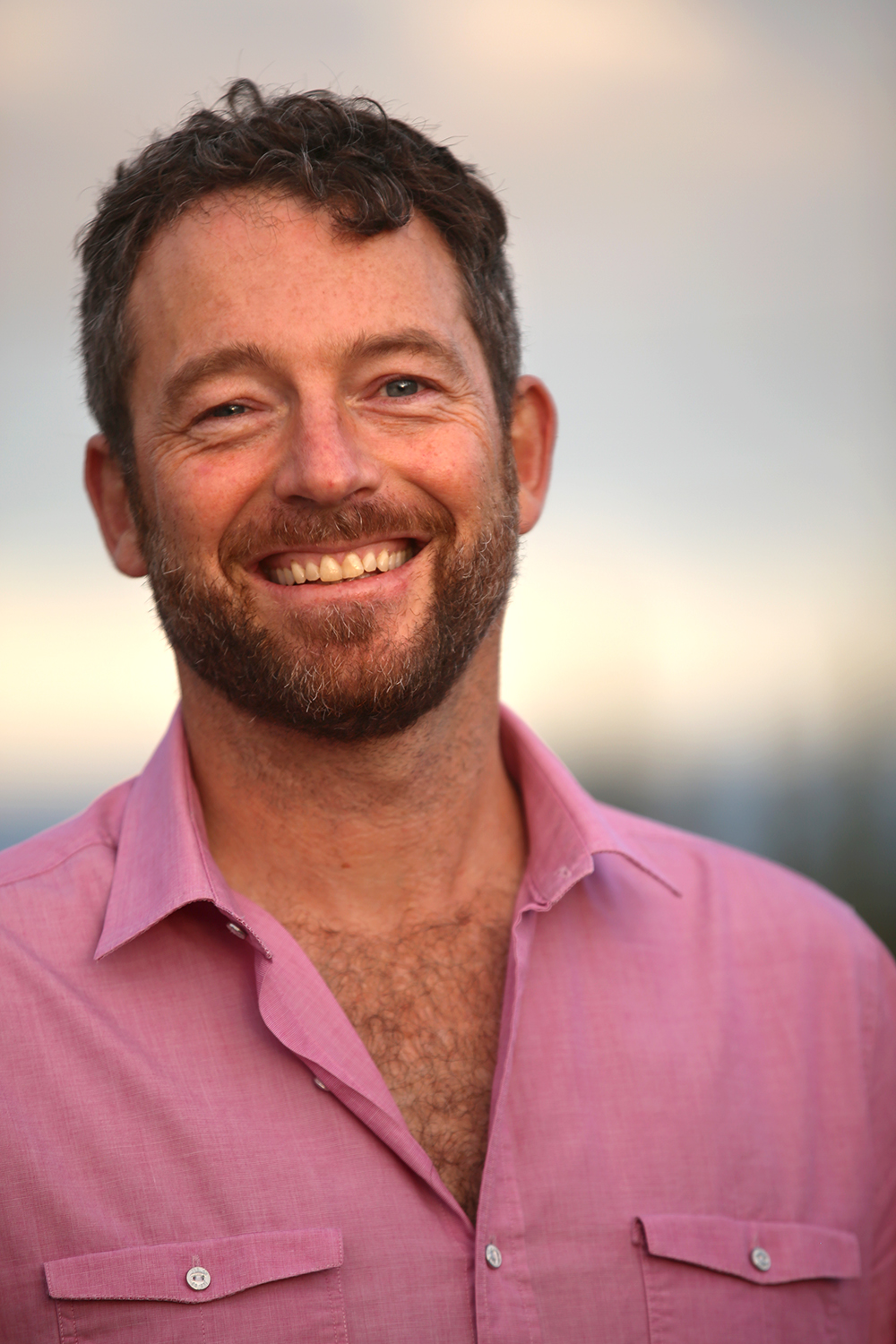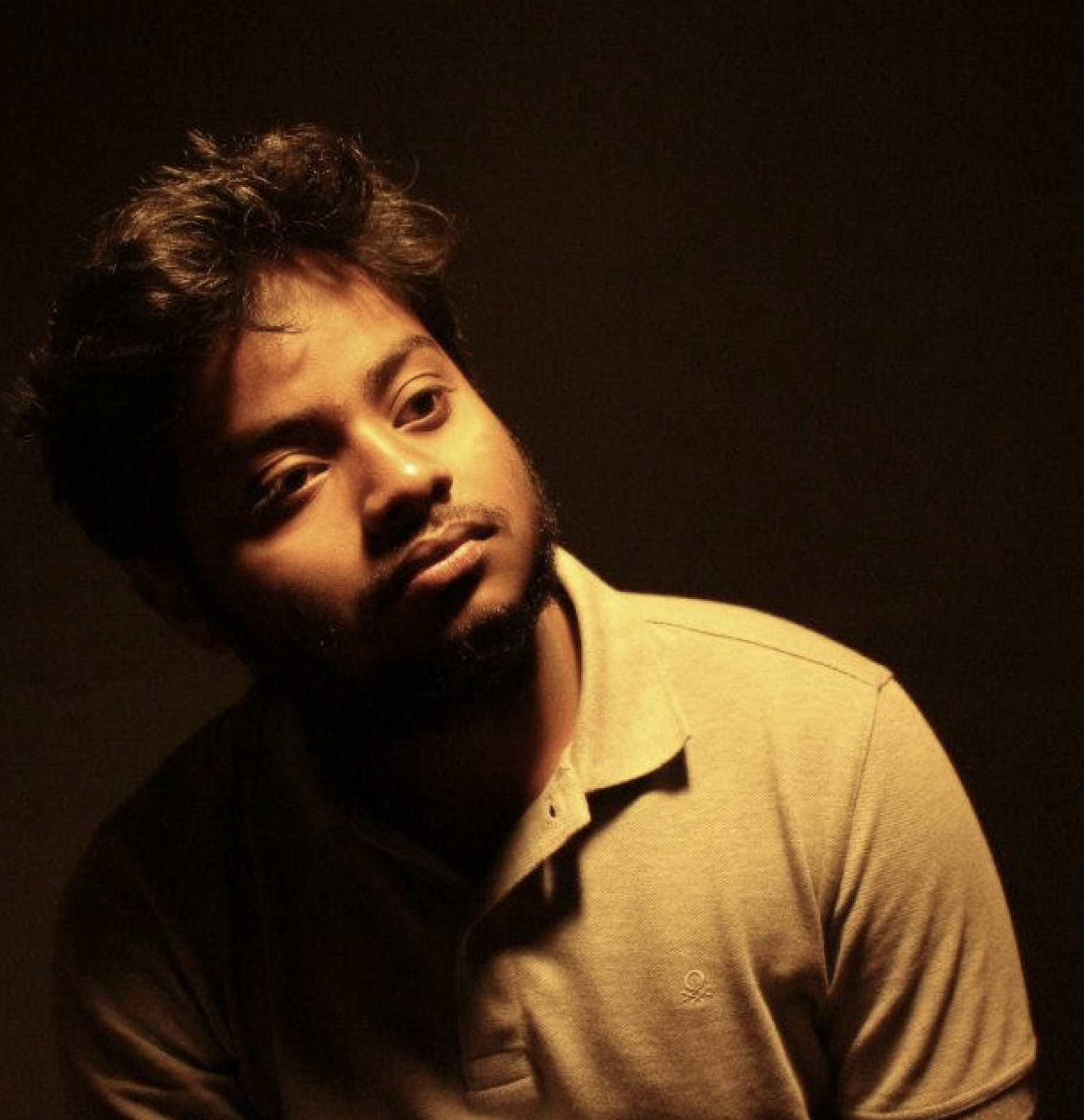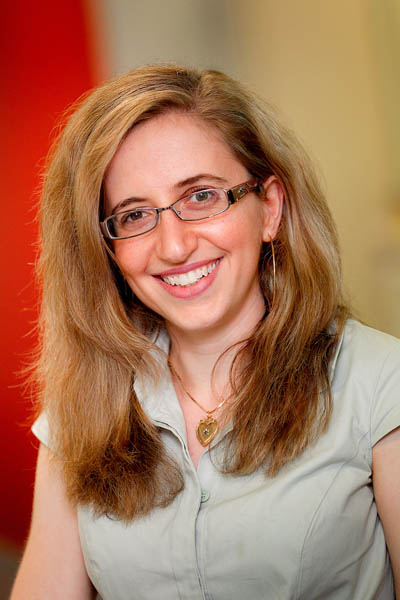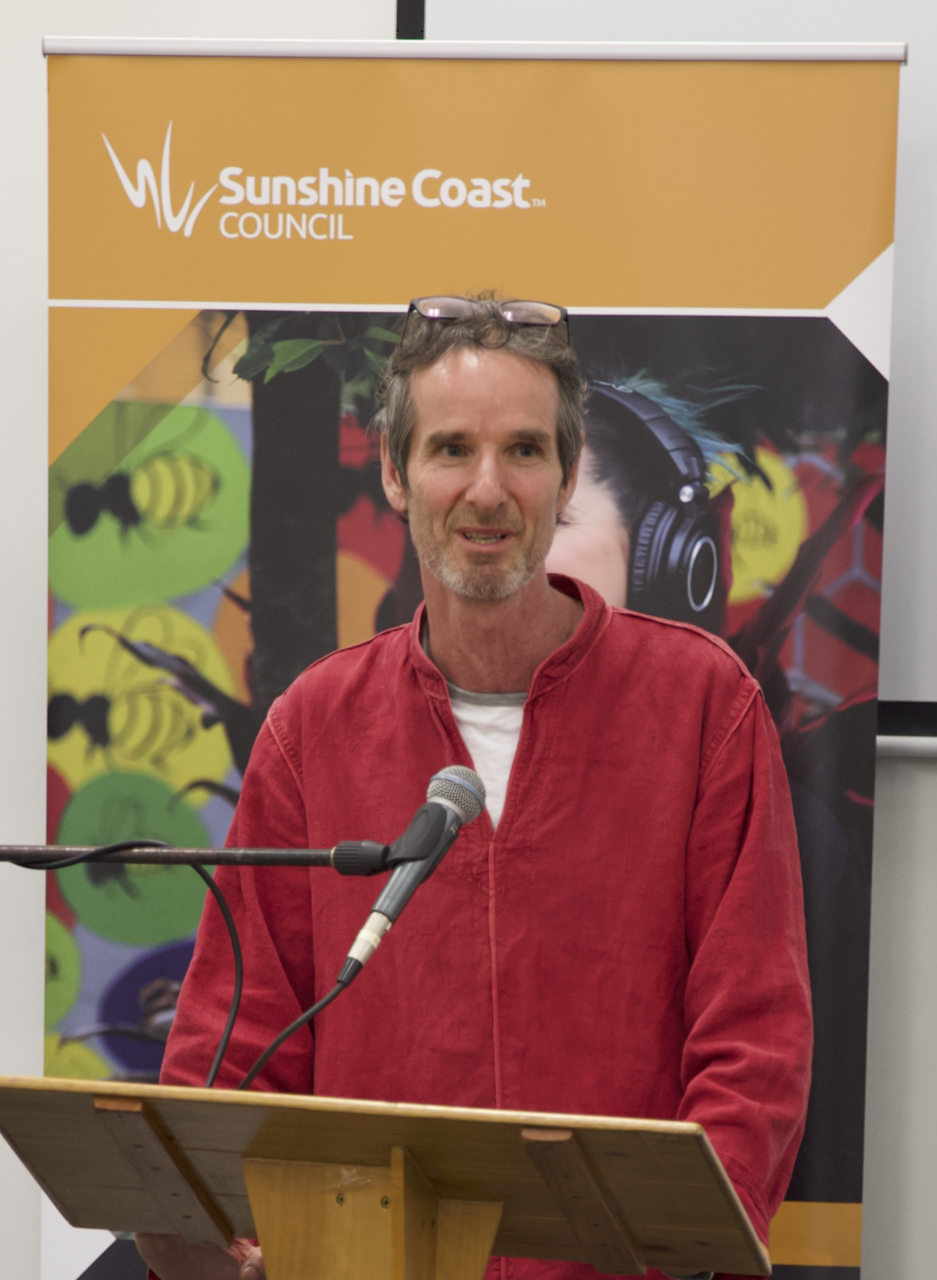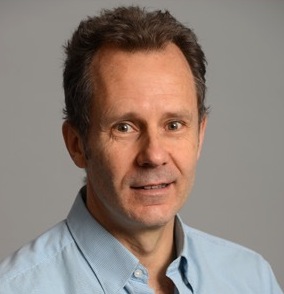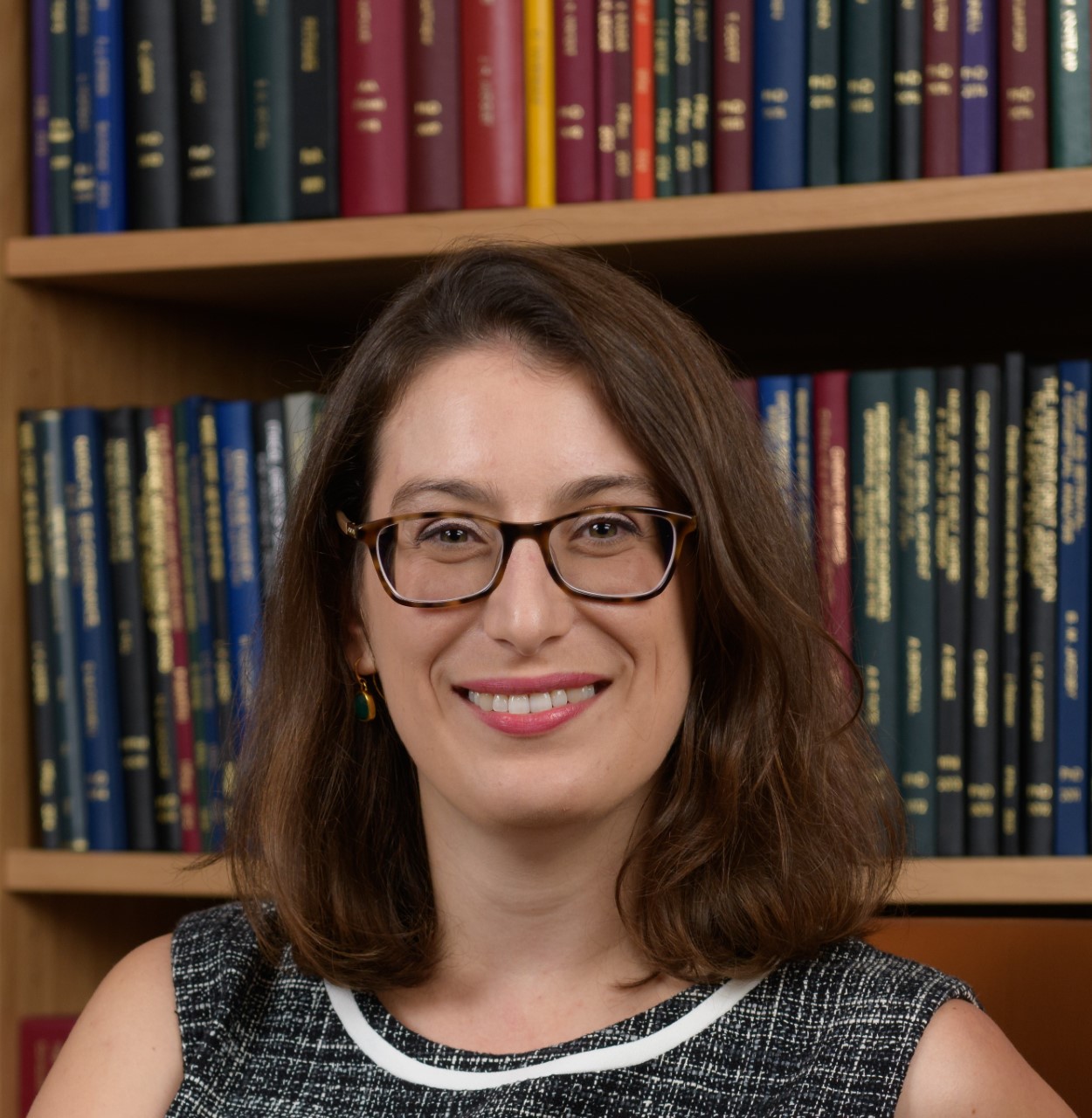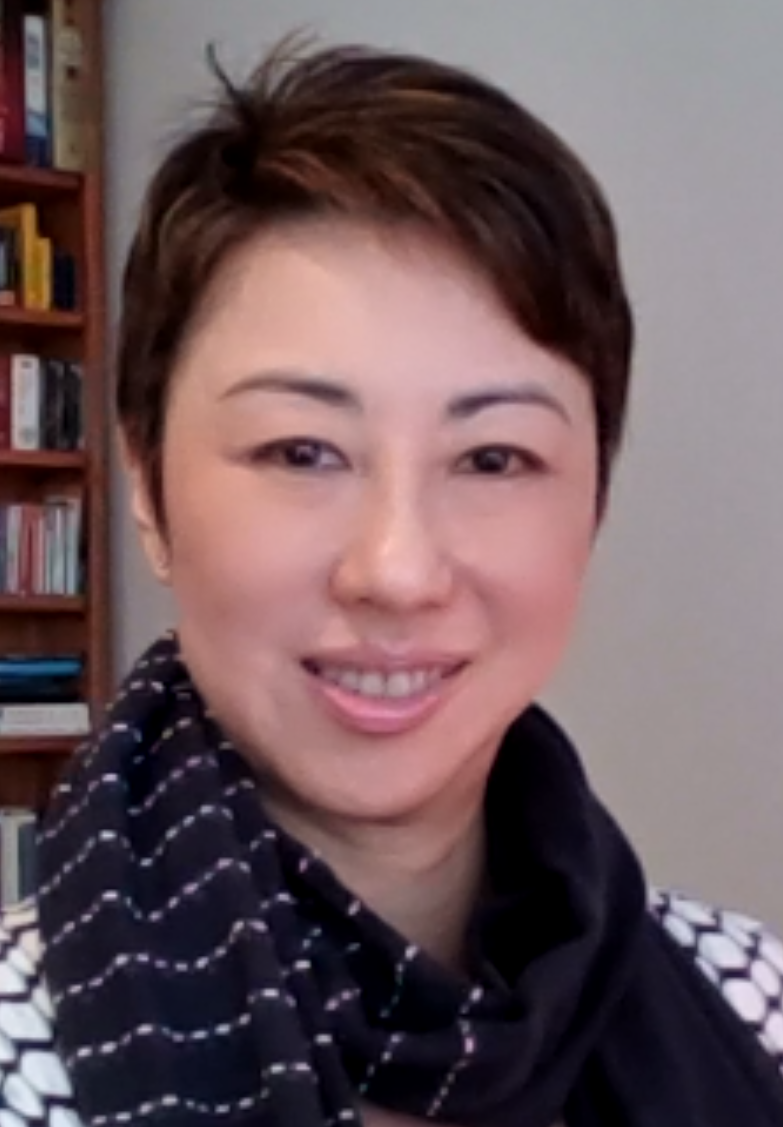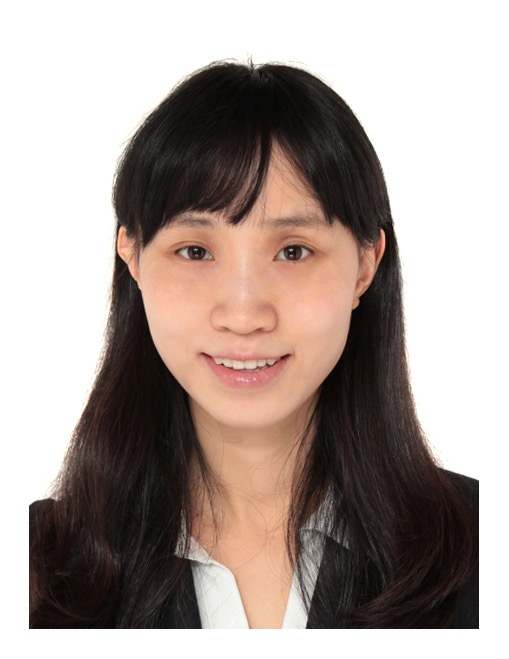People
Director
Professor John Potts (Director)

John Potts is Professor of Media in the Department of Media, Communications, Creative Arts, Language, and Literature (MCCALL). He has published numerous books and articles on media history, including radio history, as well as works of cultural history, art history and intellectual history incorporating elements of media history. He is the author of Radio in Australia (1989), A History of Charisma (2009), The New Time and Space (2015) and Ideas In Time (2019) as well as Culture and Technology (co-authored with Andrew Murphie, 2003). Edited books relating to media history include Use and Reuse of the Digital Archive (2021) and After the Event: New Perspectives on Art History (co-edited with Charles Merewether, 2010). He has recently completed an ARC Linkage Grant project, Digitising the Kaldor Public Art Projects Archive, and is currently a member of the ARC Discovery Grant project Cultural Conversations: A History of ABC Radio National, with CMH members Dr Virginia Madsen and Professor Bridget Griffen-Foley.
Advisory Board
Phillipa McGuiness, (Chair) |
Dr Jane Connors, Head, Industry Policy and Strategy, ABC Radio |
Dr Virginia Madsen, Senior Lecturer, CMH Co-Deputy Director |
Professor Chris Dixon, Executive Dean, Faculty of Arts |
Dr Justine Lloyd, Senior Lecturer, CMH Co-Deputy Director |
Dr Chris Müller, Senior Lecturer |
| Dr Margaret Van Heekeren, Lecturer, University of Sydney |
| Associate Professor Fay Anderson, Associate Professor, Monash University |
| Patrick McIntyre, CEO of the National Film and Sound Archive |
Full Members
Professor Michelle Arrow
I am a cultural historian in the Department of Modern History, Politics and International Relations. I have written extensively on the history of Australian popular culture and the representation of history in popular culture, especially on television and radio. My last book, Friday on Our Minds: Popular Culture since 1945 (2009) was shortlisted for the 2010 NSW Premier's Australian History Prize, and I was awarded an Australian Learning and Teaching Council citation for my teaching in 2010. In 2014, my radio documentary feature, Public Intimacies: The 1974 Royal Commission on Human Relationships won the NSW Premier’s Audio Visual history Prize (I shared the award with Catherine Freyne and Timothy Nicastri). With Dr Tanya Evans and Dr Clare Wright, I co-convened the Presenting the Past symposium on history and the media held in September 2013, and for History Week 2015 I convened the Public and Popular Histories of Anzac Symposium, which investigated the ways that Anzac was represented in film, television and popular culture. My co-edited book (with A/Prof Clare Monagle and Dr Jeannine Baker), Small Screens: Essays on Contemporary Australian Television was published by Monash University Publishing in September 2016. My most recent book, The Seventies: The Personal, the Political and the Making of Modern Australia, was published in March 2019 by NewSouth Books. It examines the cultural, social, and political impact of the women's and gay and lesbian movements, particularly the ways in which they troubled the boundary between public and private with their activism. |
Dr Justine Lloyd
I am a Senior Lecturer in the Department of Sociology. I am currently working on a set of projects which build on feminist critiques of the public sphere and seek to develop innovative, historically informed ways of looking at contemporary media forms. My research uses audio archives, policy documents and interviews to map cultural histories of media. My current project provides the first comparative history of women's public service radio programming in Canada and Australia via correspondence and audience research, scripts and listeners' letters, and was recently published as Gender and Media in the Broadcasting Age with Bloomsbury. I was a member of the ARC's Cultural Research Network, and through this framework developed an interdisciplinary, collaborative project on the cultural literacies and technologies of 'listening'. In July 2016 I will be a visiting fellow at the Museum of Applied Arts and Sciences (MAAS/Powerhouse), Sydney. I am a joint editor of the journal Space & Culture and contribute to the journal’s blog, SpaceandCulture.com |
Professor Tanya Evans
I am a Professor in the Department of History and Archaeology at Macquarie University and Director of the Centre for Applied History. I work on the history of the family in Australia and Britain from the eighteenth century through to the present and public history. My publications include Family History, Historical Consciousness and Citizenship: A New Social History (Bloomsbury, 2022); (with Pat Thane) Sinners, Scroungers, Saints: Unmarried Motherhood in Twentieth-Century England (OUP, 2012) Unfortunate Objects: Lone Mothers in Eighteenth-Century London (Palgrave, 2005) and Fractured Families: Life On The Margins in Colonial New South Wales (University of New South Wales Press, 2015). I have acted as a consultant for numerous television production companies. I was a consultant and interviewee for a documentary based on the eighteenth-century London Foundling Hospital made by RDF Media and broadcast in the UK on Channel 4 in 2003 and for a Granada documentary on Arthur Munby and Hannah Cullwick in 2008. In recent years I have acted as a historical consultant for Testimony Films, Ricochet, Black Diamond and the BBC all producing programmes on the history of the family in Britain. I continue to work as a consultant for the Australian series of Who Do You Think You Are? In 2013 I made a Radio National Hindsight program on the history of The Benevolent Society. I am committed to the need for academic historians to engage with a wide variety of sources, print, visual and material, and to contribute to the high-quality representation of history in the media. Together with fellow Centre member Associate Professor Michelle Arrow, I co-convened the Presenting the Past symposium on history and the media held in September 2013. |
Emeritus Professor Murray Goot
I am an Emeritus Professor in the Department of Modern History, Politics and International Relations, and served as the Deputy Director of the CMH until 2017. My work focuses on media history and Australian politics. I was a pioneer of radio history, the history of newspaper circulation, and the early history of market research. In more recent years my work has covered the history of talkback radio, public opinion, and political campaigning. My most recent book is Divided Nation? Indigenous Affairs and the Imagined Public (Melbourne University Press, 2007), co-authored with Tim Rowse. |
Professor Peter Greste
Professor Peter Greste is an award-winning foreign correspondent who spent 25 years working for the BBC, Reuters and Al Jazeera in some of the world’s most volatile places. From Afghanistan, to Latin American, Africa and the Middle East, he reported from the frontlines and beyond, although he is best known for becoming a headline himself, when he and two of his colleagues were arrested in Cairo while working for Al Jazeera, and charged with terrorism offences. In letters smuggled from prison, he described the arrests as an attack on media freedom. The letters helped launch a global campaign that eventually got them released after more than 400 days in prison. He has since become a vocal campaigner and advocate for media freedom – a stance that has earned him awards from Britain’s Royal Television Society, the Walkley Foundation, the RSL’s ANZAC Peace Prize, the Australian Human Rights Commission’s Human Rights Medal, and the International Association of Press Clubs’ Freedom of Speech Award. He has written about his experiences in Egypt and what he regards as the global war on journalism in a book, The First Casualty. |
Professor Bridget Griffen-Foley
Bridget is a Professor of Media, and was inaugural Director of the CMH. Her books include The House of Packer (1999), Sir Frank Packer (2000, 2014), Party Games: Australian Politicians and the Media from War to Dismissal (2003), Changing Stations: The Story of Australian Commercial Radio (2009) and Australian Radio Listeners and Television Viewers: Historical Perspectives (2020).The contents of her field-defining reference work, A Companion to the Australian Media (2014), are now available via AustLit. Bridget is a Fellow of the Australian Academy of the Humanities and currently heads its Cultural and Communication Studies section. She was historical consultant to Power Games: The Packer–Murdoch Story (2013), and is as a selector for the Australian Media Hall of Fame and a member of the expert industry panel for the Sounds of Australia. She also serves on the editorial boards of Palgrave Studies in the History of the Media, Media History, the Historical Journal of Film, Radio and Television, the Australian Journal of Politics and History and the Australian Dictionary of Biography. |
Emeritus Professor John Lechte
John Lechte is Emeritus Professor of Sociology at Macquarie University, Sydney. His doctorate on Rousseau and fiction was supervised by Julia Kristeva. Kristeva’s work has been the focus of some of his most important publications. Currently, he is preparing a book for Bloomsbury on the philosophy of the medium – a work, like his Genealogy and Ontology of the Western Image (2012) that brings into question the notion of ‘media specificity’. |
Dr Virginia Madsen
Madsen’s research explores cultural and public broadcasting traditions and forms, the history of public broadcasting in radio and audio media, documentary in radio and audio media, sound and radio production, theory and history; auditory and sound culture studies; new audio media, podcasting and the audio arts. Currently, she leads a large Australian Research Council Discovery Project, 'Cultural Conversations: A History of ABC Radio National' and she is writing the first account of the ‘documentary imagination in radio’. This project charts transnational documentary traditions and the varied forms which have evolved in radio across a number of sites and broadcasters from the UK to Europe, the USA, Canada and Australia. In 2016 she was a Visiting Research Fellow at the University of Hamburg’s Centre for Media History; in 2014 she was a Visiting Research Fellow at the British Library Sound Archive researching the BBC radio features and documentary tradition. Formerly a producer with the ABC, Madsen has contributed distinguished productions for the Australian Broadcasting Corporation, and her work has been broadcast in Europe and the USA. Her writing is in key collections: Companion to the Australian Media (2014), Radio’s New Wave (Routledge, 2013), Voice (MIT Press, 2010) and Radio (Routledge, 2009). Current publications: Madsen V. 'Transnational encounters and peregrinations of the radio documentary imagination’, in Transnationalizing Radio Research: New approaches to an old medium, (eds) Alexander Badenoch & Golo Föllmer. Transcript Verlag, Germany, 2018, pp83-99. |
Dr Willa McDonald
I am a Senior Lecturer in the Department of Media, Music, Communication and Cultural Studies at Macquarie University, with a strong interest in the history of literary journalism, as well as biography and historical fiction. Before joining academia, I worked as a journalist in print, television and radio for outlets including the Sydney Morning Herald, the Bulletin, the Times on Sunday, ABC TV and ABC Radio National. My experience in electronic media includes researching/associate producing the award-winning television documentaries Ladies in Lines and The Time of Your Life, as well as devising and producing two series of programs for Radio National, Love Stories and the ACIJ Journalism Forums. I originally trained as a lawyer (BA/LLB UNSW) and completed my PhD in 2000 on the political activism of the literary critic, poet and peace activist Dorothy Auchterlonie Green. That research underpinned my most recent book, a political biography of Green, Warrior for Peace, which largely explored Green's peace activism in Australia from the time of the Vietnam War through to the anti-nuclear protests of the mid-1980s. I am currently working on several research projects concerning creative non-fiction writing and literary journalism. These include the early stages of a history of literary journalism in Australia; a creative work (hybrid genre) examining the role of Australian missionaries in 19th century China, and a project on the ethics of memoir. |
Dr Alec Morgan
I am a Research Fellow in the Department of Media, Music, Communication and Cultural Studies and a multi-award-winning documentary filmmaker, scriptwriter and short fiction director. My documentary credits include Lousy Little Sixpence, a seminal film on the taking of Aboriginal children from their families, Admission Impossible, an investigation into the controversial White Australia immigration policies, and The End of the Earth, winner of the Gold Medal for Best Environmental Film at the New York Film Festival. My first feature film, Hunt Angels won three AFI awards in 2006, plus the Australian Film Critics Circle Award for Best Feature Documentary, the Atom Award for Best Documentary and the Joan Long Award for Achievement in Australian Film History. I am currently in production on an MQRF project titled Ablaze, a hybrid documentary that traces the journey by Indigenous opera singer Tiriki Onus to find the 'lost films' made in the 1940s by his grandfather, Aboriginal rights leader and cultural activist, William 'Bill' Onus. I am also conducting interviews with significant Indigenous media practitioners for the NFSA Oral History Program and have completed an article on the Australian government's censorship of films for Indigenous audiences in the 1930s. |
Dr Christopher Müller
I am a Senior Lecturer in Cultural Studies & Media, Department of Media, Music, Communication and Cultural Studies, Macquarie University, Sydney, and an Honorary Research Associate at the School of English, Communication and Philosophy, Cardiff University, where I received my PhD from the Centre for Critical and Cultural Theory in 2013. My work pursues research in Contemporary Thought, Cultural Studies, Literature and Media Studies. I am researching constellations of power, technology and affect in contemporary culture. I am the Co-Editor of the Genealogy of the Posthuman on criticalposthumanism.net |
Professor Tom Murray
I am Professor in Screen Media and an ARC Future Fellow in the Department of Media, Communications, Creative Arts, Language, and Literature (MCCALL). I am an interdisciplinary scholar and produce work across numerous media as a film-maker, writer and broadcaster. My feature documentary credits include The Skin of Others (2020), Love in Our Own Time (2013), In My Father's Country(2008), and Dhakiyarr vs the King (2004). These films have been selected for many of the world's most prestigious festivals including the Sundance Film Festival and IDFA Amsterdam and won major prizes including the NSW Premier's History Award, the Rouben Mamoulian Award, and the Australian Directors Guild Award for Best Feature Documentary. The focus of much of my research has been on social and environmental justice, colonialism, law, ethics, and the ongoing process of reconciliation with Indigenous Australia. I have worked across Australia and the Pacific with organisations such as the Sharing Stories Foundation, the Mulka Centre in Arnhem Land, Screenwest, ABC, Screen Australia, PACMAS and ABC International in order to assist indigenous storytellers to tell their screen stories. Works produced through these initiatives include the shorts Two Brothers at Galarra (2009), Mokuy (2010) and The Ngatji and the Paddlesteamer (2011). My PhD looked into concepts of 'voice' in cross-cultural screen and literary texts and won the MQ Vice Chancellors Commendation for Academic Excellence. In 2014 I was awarded the Max Crawford Medal for Humanities Research. |
Associate Professor Karen Pearlman
Associate Professor Karen Pearlman writes, directs, and edits screen productions. She researches creative practice, cognition, and feminist film histories. Karen's 2019 film, ‘I want to make a film about women’ won Best Documentary at the St Kilda Film Festival, qualifying the film for an Academy Award nomination. Karen was awarded Best Director in a Short Documentary at the 2020 Australian Screen Directors Guild Awards, Best Director at the inaugural CinefestOz Short Film Awards (2020), the Award for Creative Achievement at the Brisbane International Film Festival and Special Mention at the 2020 Sydney Film Festival’s Dendy Awards for the film's ‘ambitious and masterful mix of forms.’ Karen’s 2018 documentary, ‘After the Facts’, was honoured with an ASE Award for Best Editing, after its screenings at the Sydney International Film Festival, the Adelaide International Film Festival, the Perth Revelation Film Festival and the Antenna Documentary Film Festival. Her 2016 film, ‘Woman with an Editing Bench’, won the Australia’s ATOM Award for Best Short Fiction, the Australian Screen Editors' Guild (ASE) Award for Best Editing in a Short and six other film festival awards. Karen is a director, with Dr Richard James Allen, of the critically acclaimed Physical TV Company (http://physicaltv.com.au), based in Sydney, Australia. Karen is also a senior lecturer in Screen Production and Practice at Macquarie University, the 2020 Australian Research leader in Film. She and her colleague Dr Iqbal Barkat won the 2019 Australian Award for University Teaching Citation, and Karen is proud to supervise up and coming researchers in screen media practice, theory, and history. |
Dr Rebecca Sheehan
I am the program director of Gender Studies and a lecturer in the Sociology of Gender at Macquarie University, and a visiting fellow at the United States Studies Centre at the University of Sydney. The central theme that animates my research is the relationship between sexual behaviour and gendered expectations. I am particularly concerned with how social identity categories including race, class, religion, disability, and nationality intersect with gender and sexuality to create complex identities and experiences of multiple oppressions and privileges. I am interested in the intellectual development of feminist ideas and activism as well as in the shifting meanings of masculinity. I am also interested in how social identities are made and represented in, and reflected by popular culture, particularly popular music. I received my PhD and MA in History from the University of Southern California, and am working on a monograph entitled Rise of the Superwoman: How Sex Remade Gender in America’s Long 1970s (under contract with Harvard University Press). I have published articles on gender and rock music, boxing, and the American reception of Germaine Greer. |
Dr Can Yalcinkaya
Dr Can Yalcinkaya is a Senior Teacher at Macquarie University International College, where he coordinates the Diploma of Media and Communication program. He is a researcher, cartoonist, and musician, whose scholarly and creative work feed into each other. He is the convenor of the Graphic Social Science Research Network, a community of researchers who aim to foster and promote scholarly research communicated in the multi-modal medium of graphic novels. Together with Dr Safdar Ahmed, he founded the anti-racist Muslim metal band, Hazeen, performed in prominent art venues, such as Sydney Museum of Contemporary Art and Cement Fondu, and was featured on the ABC. Can is also one of the organisers of Other Worlds, Sydney's largest zine fair. His key research areas are Turkish media history; transnational media; diaspora and migrant studies; gender studies; visual culture, zines, comics and graphic novels; and ethnomusicology. |
Associate Members A-M
Dr Kylie Andrews
Dr Kylie Andrews is an historian who whose writing centres on media and gender, production studies and biography. She is the author of the 2022 book, Trailblazing Women of Australian Public Broadcasting, 1945-1975 (Anthem Press, London & New York). Kylie is currently Research Associate on the Macquarie University ARC Linkage Project 'The ABC, its Archives and its Audiences', working with Professor Bridget Griffen-Foley. In addition to receiving the Clare Burton Scholarship for her work on gender in broadcasting, she was awarded a National Council of Women Australia Day Award and the UNSW Frank Crowley History Prize for her studies of Australian media cultures. Kylie's research is also informed by her previous career in media production, where she worked on commercial projects, animated feature film and broadcast design. She has published in the International Journal of Television Studies, Media International Australia, History Australia Journal and the Australian Dictionary of Biography. Kylie was associated with the School of Communications at UTS and previously served as a committee member for the Oral History Association of Australia (NSW) and the Professional Historians Association of Australia (NSW & ACT). |
Kawsar Ali
My name is Kawsar Ali, and I am a Doctor of Philosophy candidate in the Department of Media, Communications, Creative Arts, Literature and Languages at Macquarie University. I am a recipient of a domestic scholarship through the Research Training Program and Macquarie University Research Excellence Scheme. I enjoy introducing my research topic with the following opening: We all use the Internet, but where does it come from? I started thinking about this when Brenton Tarrant, an Australian gunman, walked into two mosques in New Zealand, and killed 51 Muslims. He digitally recorded and livestreamed the attack to the Internet, where the video was shared over one million times. I wondered, how long have I gone, as a young digitally literate person, without thinking critically about the Internet that we use? And in times of disaster, despair, and danger, what can it teach us about race relations? I coined the term ‘digital settler colonialism’ to describe the framework I have developed to investigate these links, to better understand how race, power and the Internet are interconnected. You can read more about my work in an interview with the Faculty of Arts, visit my website www.onlineother.com and check out my study content on my TikTok account, kawsarphd. |
Dr Iqbal Barkat
I wrote my PhD on novelty in cinema, tracing the history through from the work of Dziga Vertov, a pioneering film-maker in the early Soviet Union. As part of my research, I have produced the independent feature film Mortars, which seeks to explore what Robert Koehler calls the 'cinema of in-between-ness' - refusing categories of fiction or non-fiction. It follows the life of a woman whose house was destroyed by demolition exercises carried out by the Australian Defence Force. She has lived in a broken house for over fifty years and is still seeking reparations. My research interests include Independent Cinema; Early Soviet Cinema; Dance; Community Filmmaking; The Cinematic Practice of Dziga Vertov; The Philosophy of Alain Badiou. |
Associate Professor Harvey Broadbent
I bring to the Centre for Media History the experience of parallel career interests and track record in both media and academic research and writing. I have had long experience as a television and radio practitioner in program production, writing for television and radio and as an executive producer (especially with the ABC) as well as print media. I combine this with academic research in Middle Eastern and Ottoman history, First World War and social history research and authorship of two military history books. As Associate Professor and Senior Research Fellow in the Department of Modern History, Politics and International Relations, I have been managing the Gallipoli Centenary Turkish Archives Research Project. The results of the project are published in my two new books, Gallipoli, the Turkish Defence and Defending Gallipoli, published respectively in February and March 2015. My interest in the Centre is focused on the multiple media representation of historical themes, events and ideas both through the media adaptation of pure research and utilisation of techniques such as oral history and recreation of historical contexts. A further focus of interest is the presentation of war in the media. Most notable recent work includes historical consultancy and main writing credits for the Australian Broadcasting Corporation's innovative and interactive website Gallipoli, The First Day. This project won the AFC's Screen Innovation Award for 2009. During 2014 and 2015 I have been a historical consultant to ABC News advising and producing material for their World War 1 commemorative coverage. See full profile |
Dr Erin Claringbold
I am an early career researcher in English literature. My research interests lie primarily in critical race and whiteness studies, particularly in regard to Australian literary and film portrayals of Islam from the 19th century to the present. Extending from my doctoral thesis, my publications in ACRAWSA, Clues and New Scholar have explored how fantasies of whiteness have been sustained through fictional portrayals of the Muslim Cameleers. |
Dr Toby Davidson
Dr Toby Davidson is an Australian literature scholar and poet based at Macquarie University. His latest book Good for the Soul: John Curtin's Life with Poetry (UWA Publishing, 2021) traces the impact of English-language poetry in the life, journalism and speeches of Australia's wartime Prime Minister John Curtin. |
|
Dr Peter Edwell
Peter Edwell is Senior Lecturer in the Department of History and Archaeology at Macquarie University. He is Deputy Director (Research) of the Australian Centre for Ancient Numismatic Studies and a member of the Centre for Applied History. Peter researches on Rome's relationship with the Sasanian Persian Empire in Late Antiquity and also about aspects of Australian art history. His recent book, The Case that Stopped a Nation: The Archibald Prize Controversy of 1944, deals in part with Australian media history and was short-listed for the Prime Minister's Literary Awards 2022. |
Dr Mei-fen Kuo
Mei-fen joined Macquarie University in 2020. She is a Lecturer in Contemporary Chinese Culture and History at Department of Media, Communications, Creative Arts, Language and Literature where she teaches and researches in the area of modern Chinese history with a focus on diaspora identity and transnational mobility. She received research Masters in the discipline of History in Taiwan. She holds a PhD in Social Science from La Trobe University. She had engaged in several projects since 2009, including Unlocking Australia’s Chinese Archive: The political organisation and social experience of the Chinese Australian community, 1909-1939(ARC Linkage),Asia-Pacific Philanthropies: Transnational networks, anti-colonial nationalism, and the emergence of modern Chinese philanthropy, 1850-1949(ARC Discovery) and Enterprising Chinese Australians and the diaspora networks, 1890-1949(ARC DECRA). She is the author of Making Chinese Australia: Urban Elites, Newspapers & Chinese-Australian Identity During Federation (Monash University Publishing) and Unlocking the History of the Australasian Kuo Min Tang 1911-2013 (Australian Scholarly Publishing). |
Paddy Manning
Paddy Manning is an experienced journalist, author and budding academic who is undertaking his doctorate on "A Century of News Corp in Australia," supervised by Professor Bridget Griffen-Foley. A contributing editor to The Monthly, he has worked for Schwartz Media, the ABC, Crikey, The Sydney Morning Herald/The Age, The Australian Financial Review and The Australian, and was founding publishing editor of Ethical Investor magazine. He has written six books, including The Successor: The High-Stakes Life of Lachlan Murdoch (Black Inc, forthcoming). He has also written Born to Rule: The Unauthorised Biography of Malcolm Turnbull (MUP, 2015); Inside the Greens: The True Story of the Party, the Politics and the People (Black, 2019) and Body Count: How Climate Change is Killing Us (Simon and Schuster, 2021), winner of the non-fiction prize in the Victorian Premier's Literary Awards 2021. He has a Bachelor of Arts (Hons 1) majoring in modern history from the University of Sydney and a Master of Arts (Journalism) from the University of Technology, Sydney where he is an industry fellow of the School of Communication and an associate of the Climate, Society and Environment Research Centre. |
Kate ManlikKate is a PhD candidate in the Department of Communications, Creative Arts, Language and Literature at Macquarie University. Their PhD thesis explores lesbian and queer women's place in the Australian HIV/AIDS landscape. Kate has published in Feminist Media Studies and has a forthcoming article in Signs: Journal of Women in Culture and Society. |
Dr Alex Mesker
I am an Associate Lecturer in music technology and interactive media in the Department of Media, Music, Communication and Cultural Studies. My research interests lie in computer-based collaborative music performance, electronic music, synthesis and animation sound. I am currently completing a PhD thesis on the sound and music of Hanna-Barbera's cartoons from 1957-1973. My most recent publication (co-authored with Rebecca Coyle) looks at sonic retro-futurism and musical themes in The Jetsons (in Music In Science Fiction Television, Donnelly and Hayward [eds], Routledge, 2013). See full profile |
Dr Kirstin Mills
Kirstin Mills is Senior Lecturer and Director of the Master of Research in the Faculty of Arts. Her research specialises in Gothic and supernatural literature of the long nineteenth century and its twenty-first-century visual and digital media adaptations, as well as the intersection of the Gothic with the historical, cultural and technological contexts from which it emerges. Her work has focused on literary representations of space, the supernatural and the sciences of the mind, Victorian mathematical and cultural concepts of the fourth dimension, occultism, virtual reality, and gender. Her current monograph-in-progress is the first to explore the adaptation of classic nineteenth-century Gothic texts into twenty-first-century digital mobile media forms. She is also a series editor for the interdisciplinary International Nineteenth-Century Studies Association Book Series with Clemson University Press. |
Dr Craig Munro
I am a book historian, biographer and editor, and my literary journalism has appeared in a wide range of newspapers, magazines and journals. As the University of Queensland Press's inaugural fiction editor, I published the work of Olga Masters, Peter Carey, David Malouf, Murray Bail, Rodney Hall, Barbara Hanrahan and many others. After completing my PhD (published by MUP in 1984 as Wild Man of Letters: The Story of P.R. Stephensen), I served as UQP publishing manager until 2000 and then as Editor at Large. In 1985 I received the Barbara Ramsden Award for Editing and later was founding chair of the Queensland Writers Centre. My history of UQP, The Writer’s Press, celebrated its 50th anniversary in 1998, and in 2006 I co-edited Paper Empires: A History of the Book in Australia 1946–2005. As the 2011 David Scott Mitchell Fellow at the State Library of NSW, I began biographical research on Sydney Bulletin critic and publisher A.G. Stephens (1865–1933). I contributed to Bridget Griffen-Foley's A Companion to the Australian Media, and my acclaimed publishing memoir, Under Cover: adventures in the art of editing, appeared in 2015. I am an Honorary Fellow in the Department of Media, Music, Communication and Cultural Studies. See full profile www.craigmunroedits.com |
Associate Members N-Z
Fereydoun PelarekFereydoun is a PhD candidate in the Department of Media, Music, Communication and Cultural Studies. His research is in the field of digital sound media and design, and he has an interest in the history of sound design practices, analogue and digital, and musical sound design. He teaches in audio, radio, and sound design in MMCCS. |
Rajdeep Roy
My first thesis, titled "The Clandestine Cinemas of Bengal: Genesis, Evolution and Praxis". It analysed the rise of the clandestine state of cinemas in West Bengal, India and how historical material conditions influenced its evolution. I have produced, directed and written several short films and video essays. I have also collaborated with Film Division of India, for producing a documentary called 'Masterstroke' which was screened at the 2018 Mumbai International Film Festival. I specialise in digital art and my understanding of audio visual aesthetics is heavily influenced by the contemporary digital artists such as Gaspar Noe, Lars Von Trier, Harmony Korine, Sion Sono and others. My research interests include film aesthetics, film movements, subversion in cinema, film history, cinematic practices of India and Bengal, film analysis through Marxist class theory perspective, Gramscian culture theory and Lacanian psychoanalysis. Currently I am concentrating on the study of hybrid aesthetics in the context of Indian cinema. |
Associate Professor Stephanie Russo
Stephanie Russo is the Discipline Chair of Literature in the Department of Media, Communications, Creative Arts, Language, and Literature. She specialises in historical fiction, and early modern and eighteenth-century women's writing. Her work has focused on exploring representations of politics, monarchy, power, fashion, gender, sex, and revolution. Stephanie has a particular interest in women's historical fiction of the twentieth and twenty-first centuries. She is also interested in contemporary historical films and television series. She is the author of The Afterlife of Anne Boleyn: Representations of Anne Boleyn in Fiction and on the Screen, which was published as part of Palgrave Macmillan's Queenship and Power series in October 2020. This project spans five hundred years of writing about the Tudors, from the work of Sir Thomas Wyatt, to contemporary literary, televisual and digital texts. Stephanie has commenced work on a project on the use of anachronism in historical fiction. Her new monograph, The Anachronistic Turn in Contemporary Historical Fictions, Drama, Television and Film will be published by Routledge in late 2023 as part of the Routledge Studies in Contemporary Literature series. She is particularly interested in how the television show Dickinson uses contemporary music and language to dramatize the life of the American poet Emily Dickinson. |
Hamish Sewell
Hamish Sewell has studied at UTS in Sydney and at the University of Queensland. He has a bachelor in communications, first class honours and a masters in creative writing. He was shortlisted for the Premiers Literary Awards in 2009 and from 2000, when he produced his first radio piece, The Interminable Son, he has worked with audio ever since. He has also worked on a number of national oral history projects. In 2014 Hamish founded the geo locative audio project as a response to the direction radio was going in Australia and the work he was doing in regional NSW. In late 2018 Hamish will be undertaking a recce into the world of immersive audio in the UK. Here he will be meeting fellow audio storytellers, artists, writer, academics and developers, as well as testing some of the leading apps available. He will be presenting his findings upon his return. |
Dr Paul Sheehan
Paul Sheehan is an Associate Professor in MCCALL, Discipline of Literature. He is the author of Modernism and the Violence of Aesthetics (Cambridge UP, 2013), as well as numerous articles and chapters on filmmakers (Werner Herzog, Michael Haneke), television shows (Deadwood, True Detective, Atlanta) and the cinema poetics of literary authors (Samuel Beckett, Cormac McCarthy, Don DeLillo). |
Dr Daniela Simone
Daniela is an intellectual property law scholar with a special interest in copyright law, media law, the creative process and the challenges of the digital age. Daniela holds DPhil, MPhil and BCL degrees from the University of Oxford and a BA (English and French)/LLB (Hons I) degree from the University of Sydney. She is a qualified lawyer and has worked at global commercial law firm, Ashurst. Prior to joining Macquarie Law School, Daniela was Lecturer in Law and Co-Director of the Institute of Brand and Innovation Law at University College London for five years. Daniela was founder of the University of Oxford’s Intellectual Property Discussion Group (and its convenor until 2013). She is a Fellow of the Higher Education Academy with extensive experience in course design and innovative, research-led teaching. Daniela's research explores the complex interactions between law, culture and technology using interdisciplinary and comparative law methodologies. She is interested in how copyright law shapes our cultural landscape and how it responds to the challenges of new technology. Her monograph (Copyright and Collective Authorship, Cambridge University Press, 2019) argued for a recalibration of copyright law’s joint authorship test to be better adapted to the highly collaborative modes of creativity that flourish in the digital age. This work was relied upon by the Court of Appeal (England and Wales) in a landmark case concerning the authorship of the screenplay to the film Florence Foster Jenkins, which has embedded a pro-collaboration authorship standard in UK copyright law (Kogan v Martin [2019] EWCA Civ 1645). |
Dr Stefan Solomon
My main area of research is the history of Brazilian cinema, focusing in particular on those films commonly associated with the Tropicália movement in the nineteen-sixties and nineteen-seventies. At present, I am considering the ways in which such films interacted with photography, comic books, graphic design, and conceptual art in Brazil. I also maintain an interest in the Hollywood screenwriting career of William Faulkner, and I am now completing a monograph which surveys this aspect of his work. |
Professor Hsu-Ming Teo
Hsu-Ming Teo is the Head of the Department of Media, Communications, Creative Arts, Language, and Literature at Macquarie University, Australia, where she teaches literature and creative writing. Her academic publications include Desert Passions: Orientalism and Romance Novels (2012), The Popular Culture of Romantic Love in Australia (2017), and the co-edited volumes, The Routledge Research Companion to Popular Romance Fiction (2021), and Cultural History in Australia (2003). She has published widely on Orientalism, imperialism, fiction, popular culture, love and popular romance studies. Her first novel, Love and Vertigo (2000), won The Australian/Vogel Literary Award and was shortlisted for several other awards. Her second novel Behind the Moon (2005) was shortlisted for the New South Wales Premier’s Literary Awards. Hsu-Ming is an associate editor of the Journal of Popular Romance Studies and an editorial board member of the Journal of Australian Studies. Judging activities: Hsu-Ming served on the advisory panel of the Man Asian Literary Prize from 2007 to 2012 and judged the 2010 Man Asian Literary Prize. She judged the NSW Premier’s Literary Award in 2007, and the NSW Premier’s History Prize in 2013 and 2017. She has also served on the peer review panels of ArtsNSW and the Australian Council for the Arts. |
Distinguished Professor David Throsby, AO
I am Distinguished Professor of Economics at Macquarie University. I hold a Masters degree from the University of Sydney and a PhD from the London School of Economics. I am internationally recognised for my research and writing on the economics of art and culture. My current research interests include the creative economy, the cultural industries, innovation in cultural organisations, culture in sustainable economic development, heritage economics, the economic role of artists, and the relationships between economic and cultural policy. I have been a frequent consultant for international organisations, including UNESCO, UNCTAD, OECD and the World Bank. My book Economics and Culture (Cambridge University Press, 2001) has been translated into eight languages, and my new book The Economics of Cultural Policy was published in 2010, also by Cambridge University Press. I co-edited Beyond Price: Value in Culture, Economics and the Arts (2008) with Michael Hutter, also for Cambridge, and a second volume of the Handbook of the Economics of Art and Culture (Elsevier/North Holland), co-edited with Victor Ginsburgh. See full profile |
Dr Daozhi Xu
Dr Xu Daozhi is currently a research fellow in the Department of Media, Communication, Creative Arts, Literature, and Language at Macquarie University. She holds a PhD in English literary studies from the University of Hong Kong. Her research interests include postcolonial studies, Indigenous literature, Chinese Australian history, race and ethnicity, and settler colonialism. Her monograph Indigenous Cultural Capital: Postcolonial Narratives in Australian Children’s Literature (2018) won the Australia–China Council’s Biennial Australian Studies in China Book Prize in 2018, and was also shortlisted for the Association for the Study of Australian Literature “Alvie Egan Award” in 2019. She has published in Journal of Australian Studies, Australian Aboriginal Studies, Papers: Explorations into Children’s Literature, Journal of the Association for the Study of Australian Literature, Antipodes, etc. Her recent project examines Chinese perspectives on Indigenous issues in Chinese Australian newspapers published in the late 19th and early 20th centuries. She is secretary of the International Australian Studies Association. |
Dr Jan Zwar
I am a Postdoctoral Fellow in the Department of Economics at Macquarie University, examining changes in Australia's contemporary book industry. The research is headed by Professor David Throsby and is funded by the ARC. More information, including links to the latest reports and media coverage relating to the project, is available here. My research interests relate to the economics and marketing of cultural sector goods and services, with a current focus on Australian book authors, publishers, booksellers and readers; public policy issues; and social justice and ethics, particularly where is there a mix of commercial and non-commercial factors involved. I have lectured in marketing at Macquarie University and affiliated institutions. My PhD, completed in 2012, examined 'Cultural Value and Books in Public Debate in Australia 2003-2008'. The PhD was cross-disciplinary between the departments of Economics and English at Macquarie University. I also have a Masters degree in International Relations from Macquarie University. In the 1990s I worked as a public servant on film, TV, and pay TV policy issues for the Department of Industry, and then joined the Australian Broadcasting Corporation as a multimedia producer, working with ABC staff in TV, radio and concerts to develop CD-ROMs. Since then I've worked on projects for corporate clients including the Institute of Chartered Accountants in Australia and the Royal Australasian College of Physicians, and for not-for-profit organisations including Bungaburra Productions, a leading Indigenous arts company. Prior to commencing full-time doctoral study in 2008 at Macquarie University, I worked as a research assistant on the Macquarie PEN Anthology of Australian Literature, as a researcher for Professor David Throsby on his book The Economics of Cultural Policy, and as Deputy Director of the Innovative Universities European Union Centre. In July 2013 I assisted the Book Industry Collaborative Council in the preparation of its final report. |
Honorary Associates
Long-serving members, now honorary |
Dr Tom DC Roberts
I am a professional researcher specialising in media and political history. I completed my PhD with the Department of Modern History at Macquarie University on the life and legacy of Sir Keith Murdoch and the origins of the Murdoch media empire in 2013. I hold Masters degrees from Cambridge University (in Social and Political Sciences) and the University of Westminster (in Communications). My career has seen me collaborate with journalists, authors, broadcasters and academics internationally but particularly on projects and productions in the United States, Australia and the UK. My first book as a sole author, Before Rupert: Keith Murdoch and the Birth of A Dynasty, inspired by my doctoral research, was published by UQP in November 2015. It went on to win the National Biography Award of 2017. For further information regarding my other books and the productions for which I have acted as consultant, as well as my contact form for any research and work queries, please see: www.TomRobertsResearch.com. |
Dr Jeannine Baker
I am a Research Associate in the Department of Media, Communications, Creative Arts, Language and Literature and an award-winning historian of women’s work in the British and Australian media industries. I was a Macquarie University Research Fellow (2017-2019), a British Academy Research Fellow (2018), and Deputy Director of the CMH (2017-2019). I was awarded the University of Melbourne’s Dennis-Wettenhall Prize for Australian History for my PhD thesis, a history of women war reporters during World War II, and the Ferguson Prize for labour history for my article ‘Women Journalists and the Pretence of Equality’ (Labour History, 2015). My first book, Australian Women War Reporters: Boer War to Vietnam was published by NewSouth in 2015. With Kate Murphy I co-edited the ‘100 Voices that Made the BBC: Pioneering Women’ website for the BBC and the University of Sussex. In 2021 I was awarded a FIAT/IFTA Media Studies Grant for ‘The Women Who Made Australian Television’, a multimedia online archival project in partnership with the National Film and Sound Archive of Australia. I have extensive experience in the museums and media sectors as a curator, researcher, writer and producer. My radio documentaries include Holding a Tiger by the Tail: Jessie Litchfield (ABC Radio National, 2015) and Fler and the Modernist Impulse (ABC RN, 2011), and I wrote and directed Our Drowned Town (SBS TV, 2001) a film about the inundation of Adaminaby for the Snowy Mountains Scheme. My current research project focuses on gender and technology in the media. |
All Honorary AssociatesDr Kate Warren, Senior Lecturer, Art History and Curatorship, ANU College of Arts and Social Sciences Professor Robert C. Allen, Digital Innovation Lab, University of North Carolina Chapel Hill Dr Kylie Andrews, University of Technology Sydney Dr Vicky Ball, Senior Lecturer, Leicester Media School, De Montfort University, UK Dr Chelsea Barnett, University of Technology, Sydney Associate Professor Frances Bonner, University of Queensland Professor Jane Chapman, Reader, School of Journalism, University of Lincoln Assoc. Prof Hugh Chignell, Director, Centre for Media History, Bournemouth University, UK Professor Martin Conboy, Co-Director, Department of Journalism Studies, University of Sheffield Associate Professor Marie Cronqvist, Lund University, Sweden Associate Professor Robert Crawford, University of Technology, Sydney Professor Denis Cryle, Central Queensland University Professor James Curran, Goldsmiths, University of London Dr Wendy Davis, Central Queensland University Dr Mary Debrett, La Trobe University Associate Professor Peter Doyle, Macquarie University (previously) Dr James Findlay, University of Sydney Dr Victoria Flanagan, Macquarie University (previously) Professor Jock Given, Swinburne University of Technology Professor Ann Gray, University of Lincoln Dr Jerome de Groot, University of Manchester Dr James Yi Guo, Beijing Normal University Associate Professor Martin Hadlow, University of Queensland Associate Professor Mark A. Hampton, Lingnan University Dr Kyle Harvey, University of Melbourne Associate Professor Chris Healy, University of Melbourne Professor David Hendy, University of Sussex, UK Dr Nick Herd, Australia Council Professor Annette Hill, Lund University Emeritus Professor, Michele Hilmes, University of Wisconsin-Madison, USA Associate Professor Ilona Hongisto, Norwegian University of Science and Technology, Norway Associate Professor Peter Horsfield, RMIT University Professor Marnie Hughes-Warrington, Deputy Vice Chancellor (Research and Enterprise), University of South Australia Professor Bruce Johnson, Macquarie University (previously) Dr Toni Johnson-Woods, University of Queensland Dr Chandrika Kaul, University of St Andrews Dr Geoff Kemp, University of Auckland Dr Kath Kenny, Macquarie University (previously) Dr Rod Kirkpatrick, Australian Newspaper History Group Dr Victoria Kuttainen, James Cook University Dr Anthony Lambert, Macquarie University (previously) Professor Sonja de Leeuw, Utrecht University Professor Catherine Lumby, The University of Sydney Associate Professor Patrik Lundell, Lund University Dr Siobhan Lyons, Macquarie University (previously) Mark Maley, Macquarie University (previously) Professor Richard Maltby, Flinders University Bob Maynard, ABC (previously) and independent researcher Professor Iain McCalman AO, University of Sydney Professor Kathryn Millard, Macquarie University (previously) Associate Professor T. Mills Kelly, Associate Director, Center for History and New Media, George Mason University Gaynor Nichols, Macquarie University (previously) Associate Professor Nicole Moore, ADFA, University of New South Wales Andrew Nette, Macquarie University (previously) Associate Professor Katharina Niemeyer, French Press Institute, Université Paris 2/Sorbonne Universités Dr Sian Nicholas, University of Aberystwyth Professor Tom O’Malley, University of Aberystwyth Dr Don Perlgut, University of New South Wales Dr Simon J. Potter, University of Bristol A/Prof Shirleene Robinson, National Library of Australia (NLA) Dr Leonie Rutherford, Deakin University Professor Hannu Salmi, University of Turku Dr Claire Scott, University of Wollongong Dr Steve Sharp, Director, Telinga Media Pty Ltd Professor Brian Shoesmith, University of Liberal Arts, Bangladesh Professor John Sinclair, University of Melbourne Professor Dipankar Sinha, University of Calcutta Ettore Siracusa, Sydney College of the Arts, University of Sydney Professor Christina Slade, Vice-Chancellor, Bath Spa University Professor Susan Smulyan, Brown University Professor Sean Street, Emeritus Professor of Radio, Bournemouth University Dr Melanie Swalwell, Flinders University Jolyon Sykes, University of South Australia Dr John Tebbutt, Monash University Michael Thurlow, Macquarie University (previously) Professor Sue Turnbull, University of Wollongong Proffesor Mark Turner, King’s College London Professor Tom Watson, Bournemouth University Dr Hans-Ulrich Wagner, University of Hamburg, Hamburg, Germany Dr Alban Webb, University of Sussex Dr Chris K. Wilson, RMIT University Dr Jason Wilson, University of Wollongong Dr Pat O'Grady Dr Margie Borschke Professor Martin Thomas, Australian National University |



